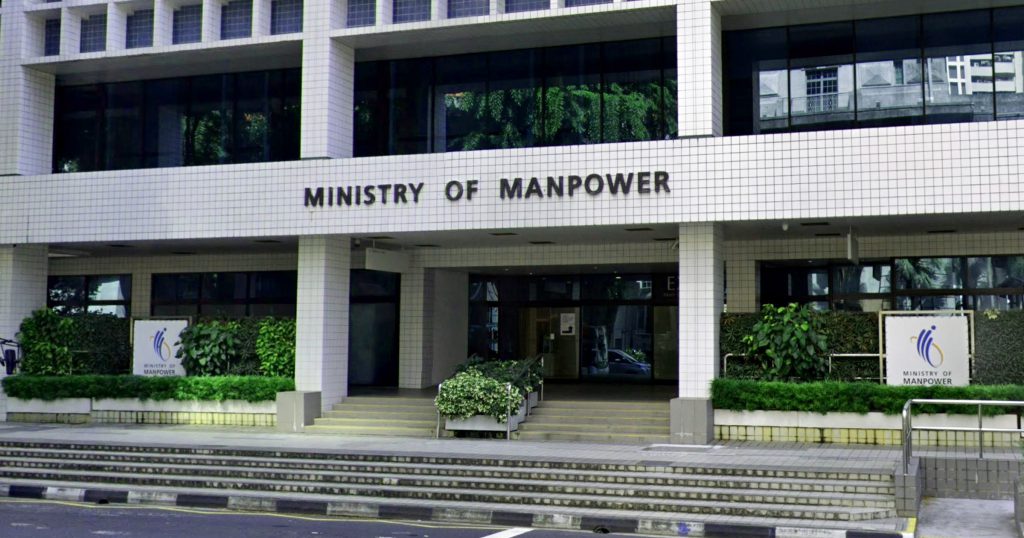Disclaimer: Unless otherwise stated, any opinions expressed below belong solely to the author. All data was sourced from the Ministry of Manpower.
According to the annual findings by the Ministry of Manpower, the value of your education keeps dropping in the eyes of prospective employers.
And we’re not talking about menial jobs here—for which it has long been the case—but the coveted PMET category as well, which has undergone a huge transformation in less than a decade.
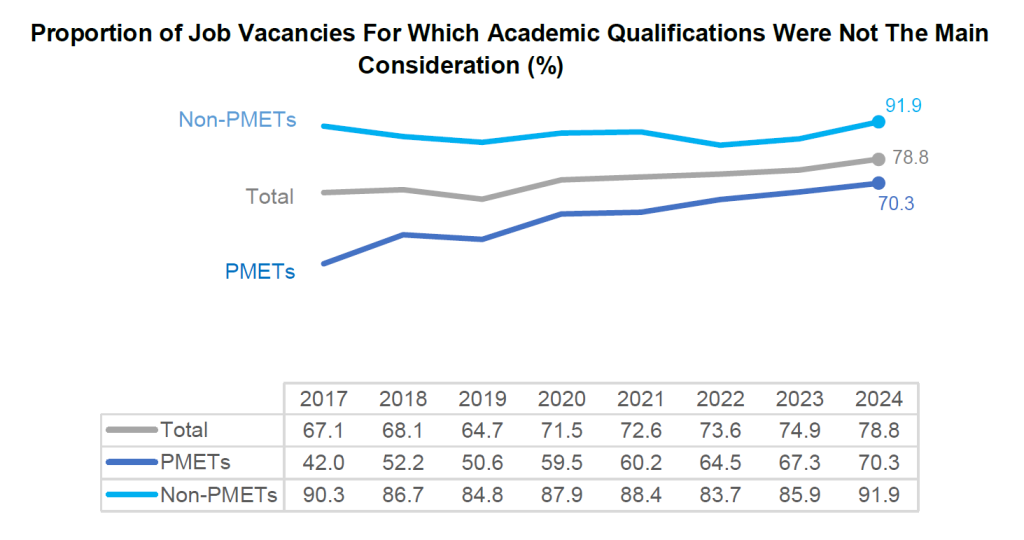
Overall, academic qualifications were not the primary consideration for nearly 80% of jobs available last year, and 70% of PMET openings.
This is a remarkable shift from the 42% in 2017 or barely 50% in 2019—just five years ago.
Of course, the fact that it wasn’t the main consideration doesn’t mean it wasn’t a consideration at all. However, 52.5% of the 15,000 businesses and organisations surveyed said they were willing to consider candidates with lower than required educational qualifications, even for PMET positions.
Why is that? Well, the answer is predictable.
Companies have other priorities, chiefly your skills and experience in the position that they are trying to fill. Over 36% admitted that such an approach provides better outcomes than evaluating a candidate’s education.
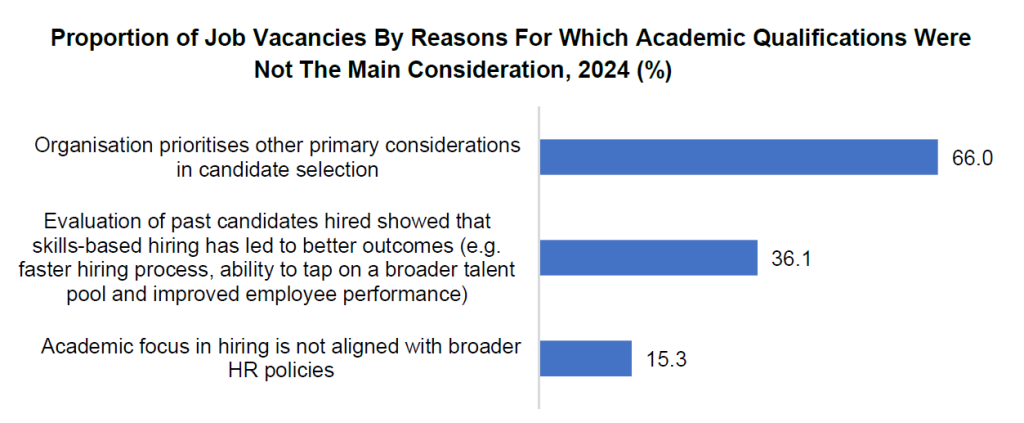
It might also be a result of an ever-growing number of university graduates. As of 2024, over 43% of the local workforce holds an academic degree, marking a jump of 11 percentage points over the past decade.
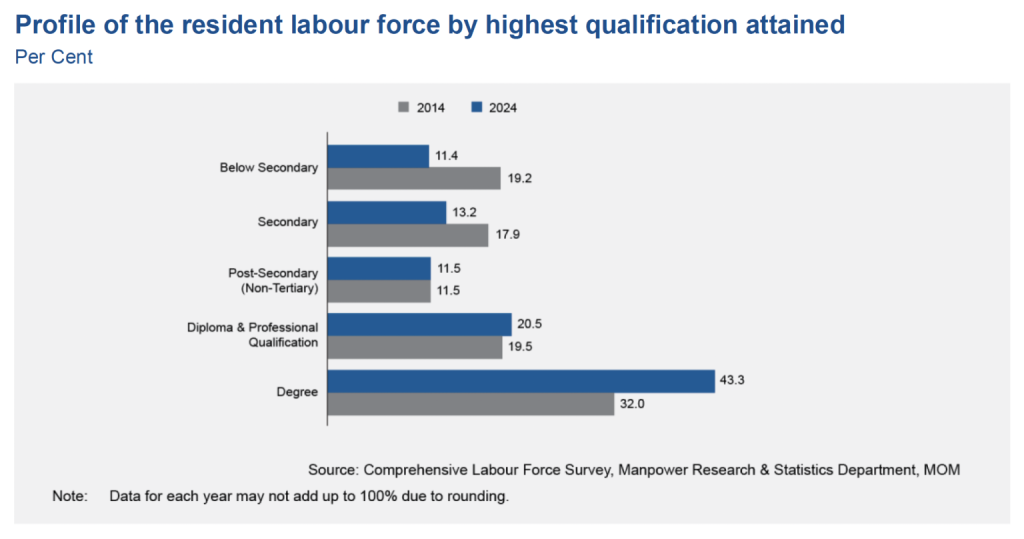
Moreover, this increase is driven by much better education of younger generations, which means that in the pool of available, relatively young talent, half or more will already have at least a bachelor’s degree. It has stopped being a competitive advantage and, instead, has become a basic achievement for most Singaporeans.
That’s why companies have to look at other differentiating factors.
In other words, it’s not that a degree is no longer important, but it’s become so common that it’s not really an achievement.
Degrees still pay
What’s also worth noting is that while paper qualifications might no longer decide whether you get hired or not, your education does correlate with your future pay.
As I reported a few months ago, the median salary for degree holders has surpassed S$8,650, compared to the national average of just S$5,500—that’s over S$3,000 per month, or approximately S$36,000 per year.
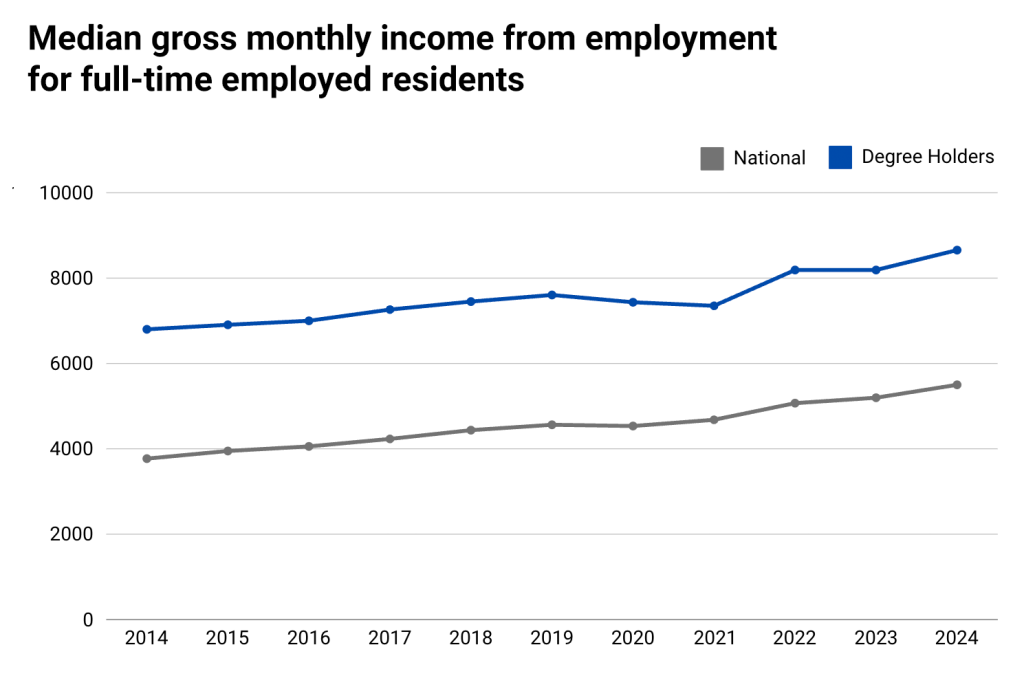
As if that wasn’t enough, yesterday I wrote about their dominance among the best-paid local workers. In the highest income bracket reported by MOM of “S$20,000 or more” per month, 91% hold a degree. For those earning S$10,000 and above, it’s still close to 87%.
So, yes, you can be a genius dropout making big bucks one day, but your chances of achieving that are considerably smaller.
A major reason for this might not be the difference in skills acquired during your studies (except for technical or medical courses, of course) but the social network you build at the university, which ends up benefiting you later in your career.
That alone might be reason enough not to dismiss the value of academic education, even if it is no longer as important for landing a great job as it once was.
- Read other articles we’ve written on job trends here.
Featured Image Credit: Google Street View


